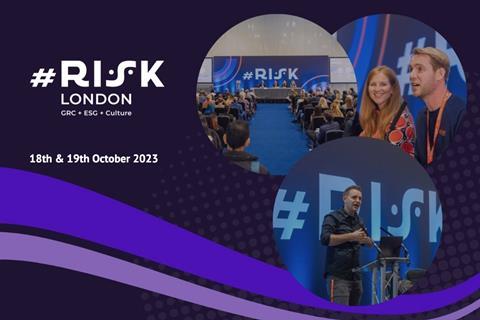by Sylvia Bruce
A simple Internet search of this article’s title gets endless results such as ‘5 steps of risk management’ or ‘4 key enablers of effective team working’, ‘The 4 C’s of risk management’, ‘7 principles of risk management’, ‘10 principles of risk management’.
One risk management definition is “helps you to identify and address the risks facing your business and in doing so increase the likelihood of successfully achieving your businesses objectives. A risk management process involves methodically identifying the risks surrounding your business activities”, reminding and reinforcing that risk management enables business.
Risk management is not about taking risk. It is not about being, sometimes overly, risk averse. It’s about taking risk, wisely. It’s about being solution rather than problem driven. It’s about knowing the business, and having the ability to identify relevant risk(s) and appropriate mitigations. It is not, as some, and yes, I did too in the early days of my financial career, think risk management is about being negative, blocking, stopping things getting done. Risk management is not Audit nor the ‘risk police’ either!
Bottom line though in my opinion is, that for all the articles and definitions, risk management, and business overall, is about people. More specifically, how they function on a daily basis. Organisations have spent billions on processes, systems, fail-safes, firewalls, alerts, algorithms, reporting etc etc, but often forget, or overlook perhaps because it is so, or too, simple, that it is people who make things happen. They are the decision makers, problem solvers, risk managers, business enablers and their behaviour and performance matters.
Most risk is from the human factor. Mistakes, errors, mis or different judgements, opinions, ideas, thoughts, perceptions, viewpoints, backgrounds to name a few. That’s why good mental health - as defined by The World Health Organisation as “Mental health is not just the absence of mental disorder. It is defined as a state of well-being in which every individual realises their own potential, can cope with the normal stresses of life, can work productively and fruitfully, and able to make a contribution to their community, and enables sound decision making and informed choices” - is key. Whatever phraseology we use, whether it’s mental acuity, functionality, fitness, toughness, being ‘on it’ or OK, our ability to think clearly, effectively, rationally matters. It enables sound, productive, constructive, informed decision making. It’s often the difference that makes the difference.
Our mental health affects all that we do, eg. our thinking, reactions, behaviours, concentration, relationships, communication, learning, decision making, problem solving, crisis management. In short, our physiology which affects how we turn up, how we do our jobs. If employees are not fully functioning, whatever the cause be it stress, personal matters, poor mental health, a diagnosed mental illness, or simply a ‘bad day’ given we’re all susceptible to those, all those things can be negatively affected which could lead to behaviours that result in:
- Bad / inappropriate behaviour.
- Performance matters.
- Misconduct.
- Mistakes and cover ups.
- Ignoring/not following procedures.
- Fraud – missing spotting signs, suspicious/out of character activity/actions.
- Financial misconduct.
- Open to negative influence due to vulnerability.
- Making risky or adverse decisions.
- Poor / inappropriate / ambivalent decision making. That might mean missing that golden opportunity or, conversely, having an albatross deal on the books.
- Crises badly managed, errors of judgement, which may have far reaching implications not only to the business, but health, safety and in certain environments eg construction, oil, gas, mining, possibly lives too.
Such factors could mean litigation and/or negatively affect reputation, brand, stakeholder/customer/investor confidence, market share, growth, success, let alone the bottom line. Mental health then becomes a business asset. Poor mental health becomes a business risk.
I’d advocate that what sits behind good risk management, and business culture in general for that matter, is good mental health. So including all employees’ mental health as a people risk factor in risk management processes, makes business sense. Alongside risk management, mental health is also a business enabler because business is at risk if it’s people are not at their best.
Follow Sylvia Bruce on LinkedIn

Do you know what data is being used to ‘train’ the AI in your organisation?
Do you have a process for managing ‘risk’ in the use of AI?
Are employees being trained in the use of AI?
Attend #RISK to learn & knowledge share:
Learn more about #RISK Amsterdam – 27th & 28th September 2023


















No comments yet